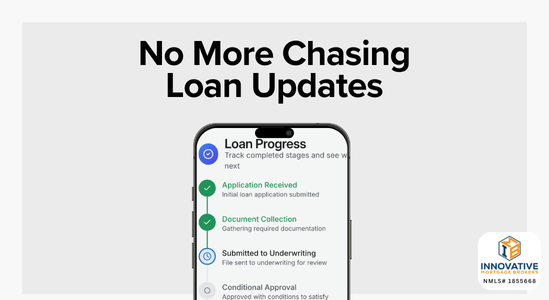Mortgage rate volatility, oil shocks, and why execution matters more than quotes When a war…
Mortgage Guidelines for Commission Income
What Fannie Mae, Freddie Mac, and FHA Require from Commission-Based Borrowers
Commission income can be a powerful asset when qualifying for a mortgage. However, unlike salaried income, commission-based earnings have unique guidelines for qualification and documentation, particularly from major mortgage agencies such as Fannie Mae, Freddie Mac, and the FHA. This article will break down the specific requirements from each agency, focusing on income history, expected continuation, income calculation methods, and the necessary documentation. Understanding these guidelines can help commission-based borrowers better navigate the mortgage application process.
Why Commission Income Needs Special Attention
Commission income is often variable, making it different from a predictable salary. This variability can make it challenging to determine an applicant’s income stability and potential risk. Each mortgage agency has established guidelines to assess commission income fairly, ensuring that borrowers are not penalized for having fluctuating earnings while protecting lenders from overestimating repayment capabilities. Here’s how Fannie Mae, Freddie Mac, and FHA each approach commission income and how their requirements differ.
Fannie Mae’s Guidelines for Commission Income
Fannie Mae has specific requirements for borrowers who rely on commission income, emphasizing stability and predictability.
History of Receipt
Two-Year Standard: Fannie Mae generally recommends a minimum of two years of commission income history to consider it stable and predictable. However, a shorter history (12 to 24 months) may be acceptable if there are positive factors, such as a clear trend of increasing income or recent promotions.
Positive Offsetting Factors: If the borrower has less than two years of commission income, commission income received for 12 to 24 months may be considered acceptable income if there are positive factors to reasonably offset the shorter income history.
Continuance
Fannie Mae places importance on whether the income is likely to continue. If the income does not have an expiration date and the borrower’s work history shows consistency, the income may be deemed stable. Lenders don’t need to request additional documentation unless they are aware of factors that may indicate potential instability.
Calculation
Fannie Mae advises lenders to calculate commission income by averaging it over time, considering annual and year-to-date income. The guidelines suggest using the most recent years’ income information to form an accurate picture of the borrower’s earnings.
Documentation
Primary Documentation: Fannie Mae requires either a completed Verification of Employment (Form 1005) or the borrower’s recent pay stubs, along with IRS W-2 forms covering the last two years. These documents provide a detailed record of the borrower’s commission income, showing consistency and providing an accurate basis for calculating qualifying income.
Freddie Mac’s Approach to Commission Income
Freddie Mac’s guidelines for commission income echo some of Fannie Mae’s standards but include additional provisions for evaluating income trends.
History of Receipt
Two-Year Recommendation: Like Fannie Mae, Freddie Mac recommends a two-year commission income history but may accept a shorter history if the lender can provide a written analysis justifying income stability. This written justification is necessary to explain any shorter income history.
Continuance
Freddie Mac requires that commission income is likely to continue for at least the next three years. This ensures that the borrower’s income will remain steady enough to support mortgage payments in the long term.
Calculation
Consistent or Increasing Income: If the borrower’s income is stable or increasing, the lender may average the year-to-date and most recent year’s income over the relevant months. If there’s a substantial increase (over 10%) in income, the lender must perform additional analysis and provide documentation to support the borrower’s qualification.
Declining Income: When a borrower’s income shows a declining trend, Freddie Mac requires lenders to use only the current year’s earnings. Additional documentation is needed to explain the decline and verify that the income has stabilized.
Documentation
Primary Requirements: Freddie Mac requires year-to-date pay stubs, W-2s for the most recent two years, and a 10-day pre-closing verification (PCV). Alternatively, a written verification of employment (VOE) may be used to document earnings, along with a PCV within ten days of closing.
FHA’s Guidelines for Commission Income
The FHA’s guidelines for commission income are designed to be more flexible, accommodating borrowers with less than two years of commission-based earnings.
History of Receipt
One-Year Minimum: Unlike Fannie Mae and Freddie Mac, FHA permits commission income if it has been earned for at least one year in the same or a similar line of work. This shorter history requirement makes FHA loans more accessible to borrowers with a recent shift to commission income, provided their employment history shows stability.
Continuance
Likely to Continue: FHA guidelines stipulate that the income must be reasonably likely to continue, although they do not set a strict three-year requirement like Freddie Mac. This guideline is subjective and relies on the lender’s judgment based on the borrower’s employment and income patterns.
Calculation
Variable Income Calculation: FHA lenders typically use a similar approach to Fannie Mae and Freddie Mac, averaging commission income over a defined period to account for fluctuations. However, FHA guidelines are less restrictive, allowing the lender slightly more discretion in evaluating commission-based income.
Documentation
Traditional and Alternative Documentation: FHA lenders can use traditional documents, such as pay stubs, W-2 forms, or a written verification of employment, to verify commission income. A reverification of employment is required within 10 days of the closing date, ensuring that the borrower’s employment status remains active before the loan is finalized.
How Innovative Mortgage Brokers Can Help Commission-Based Borrowers
Navigating commission income guidelines can be complex, but that’s where Innovative Mortgage Brokers comes in. With our experience in the mortgage industry, we’re here to support commission-based borrowers, ensuring they meet the necessary criteria and providing guidance through the application process. Here’s how we make the process easier:
- Customized Guidance: We understand that commission income varies, and sometimes hard to explain to the underwriters. We work closely with you to ensure that your income documentation reflects a stable financial picture. Our team can advise on the appropriate documents and explain how your income will be assessed by lenders, as well as help the lenders access the income correctly.
- Extensive Lender Relationships: At Innovative Mortgage Brokers we work with a range of lenders, giving you access to a variety of loan options, including those tailored to commission-based income earners. This flexibility allows us to match you with a lender who understands commission-based earnings and offers the best terms for your needs.
- Transparent Process: We keep the process straightforward and transparent, helping you understand each step and avoid any surprises along the way. From income calculations to final approvals, we’re here to make your mortgage journey as seamless as possible.
Key Takeaways for Commission-Based Borrowers
If you’re a commission-based income earner considering a mortgage, here are a few essential points:
- Two-Year Income History is Preferred: While some lenders may consider shorter periods, having two years of commission income history strengthens your application and makes it easier to qualify.
- Stable and Consistent Earnings are Crucial: Mortgage agencies prefer commission income to be consistent or on an upward trend. Declining earnings may require additional documentation to prove that your income has stabilized.
- Choose a Lender Who Understands Commission Income: Working with an experienced mortgage broker like Innovative Mortgage Brokers can simplify the application process and connect you with lenders who recognize the potential in commission-based earnings.
Final Thoughts
Commission-based borrowers have unique challenges when it comes to securing a mortgage, but with the right approach and guidance, achieving homeownership is entirely within reach. By understanding the requirements from Fannie Mae, Freddie Mac, and FHA, and by partnering with a knowledgeable broker, you can confidently navigate the mortgage application process in Pennsylvania (PA) and Florida (FL) and secure the home loan you need.
At Innovative Mortgage Brokers, we’re here to help commission-based borrowers succeed, providing the expertise, resources, and support to turn your homeownership dreams into reality. Reach out to us today to explore your mortgage options and start your journey to a new home.





